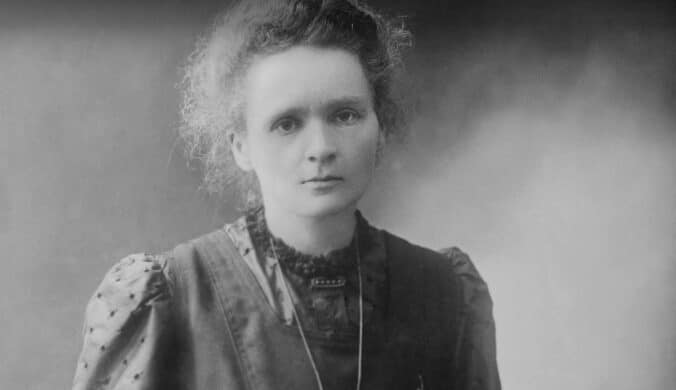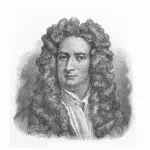Isaac Newton, born January 4, 1643, was an English physicist and mathematician. He developed the laws of motion and is credited as one of the great minds of the 17th-century Scientific Revolution. In 1687, Newton published his most acclaimed work, “Philosophiae Naturalis Principia Mathematica” (“Mathematical Principles of Natural Philosophy”), which is regarded as the most significant book on physics.
Fast Facts
Full Name:
Sir Isaac Newton
Nickname:
Isaac Newton Jr.
Birth date:
January 4, 1643
Death date:
March 31, 1727 (age 84)
Zodiac Sign:
Capricorn
Height:
5' 6"
Net Worth:
$4.5 million
Background
Isaac Newton was born on January 4, 1643, in Lincolnshire, England. Newton was the only child of a local farmer, also named Isaac, who died three months before his son was born. His mother was Hannah Ayscough Newton. He had a premature birth. He was so frail that they thought he would not survive. Newton, however, defied the odds and survived. When Newton was three, his mother remarried a successful minister, Barnabas Smith. She went to live with him and took Newton to live with his grandmother.
This experience left an indelible mark on Newton, later manifesting itself as an acute sense of insecurity and anxiety. He was very defensive of his published work. Newton enrolled at the King’s School in Grantham, a town in Lincolnshire, where showed an early interest in science.
When he was 12, his mother withdrew him from school. She wanted him to take up farming. Newton was miserable, as he found farming tasking, and monotonous. In 1661, Newton enrolled at Trinity College, Cambridge in a work-study program.
Although Newton was initially taught the standard curriculum, he was more interested in advanced science. It was during this period that Newton kept a set of notes, titled “Quaestiones Quaedam Philosophicae” (“Certain Philosophical Questions”). The notes outlined the new concept of nature that Newton discovered, which provided the foundation for the Scientific Revolution.
Newton made discoveries in motion, optics, mathematics, and physics. He came up with the theory of the light spectrum, and that light was composed of particles. His landmark book on physics, “Principia,” contains information on nearly all the essential concepts of physics, which helped him to outline the theory of gravity and laws of motion. Along with Gottfried Wilhelm von Leibniz, Newton is credited with developing theories of calculus.
Newton’s first major scientific achievement was constructing a reflecting telescope in 1668. As a professor at Cambridge, Newton delivered annual lectures and chose optics as his preferred topic. He used his telescope to study optics and help prove his theory of light and color.
Although there are claims that Newton was engaged, he was never actually married. He had a long-term rivalry with Robert Hooke.
Career timeline
Newton begins his undergraduate studies at Trinity College, Cambridge.
Newton obtains a bachelor’s degree, however, the scientific studies he carried out while an undergraduate are still unknown to the world.
He invents the reflecting telescope.
He publishes his landmark “Philosophiae Naturalis Principia Mathematica” (“Mathematical Principles of Natural Philosophy”), which sets forth the laws of motion and universal gravitation.
Newton is knighted by Queen Anne, becoming the first scientist to receive the honor.
Newton dies in his sleep at the age of 84.
Why We Love Isaac Newton
His discoveries
Newton played a crucial role in changing the way we understand the universe. Not only did he discover the laws of gravity and motion, but he also invented calculus.
His legacy
Newton is a force to reckon with in the world of science. His works and discoveries have shaped the world of science and are the foundation on which modern physics is built.
His role in scientific revolution
Newton helped shape the scientific revolution. His inventions and innovations were so groundbreaking in an era when scientific advancement was still finding its feet. So many scientific inventions are attributed to Newton.
5 Surprising Facts
He got expelled
Newton got expelled from school when he was 12 because he fought with another student.
He almost became a farmer
After his stepfather died, his mother took him out of school and wanted him to go into farming.
Newton kept a journal
He had a journal where he recorded his transgressions.
His lectures were poorly attended
Newton was a professor at Cambridge and his lectures recorded low turnouts as students showed little interest in his classes.
He had a keen interest in alchemy
Besides being a scientist, Newton showed serious interest in alchemy and spent a significant part of his adult life pursuing alchemical experiments.
Isaac Newton FAQs
What is Sir Isaac Newton's I.Q.?
By many metrics, his estimated I.Q .ranges from 190 to 200.
Did Isaac Newton discover gravity?
Yes. He developed the laws of gravity.
Where did Isaac Newton die?
He died in Kensington, London, United Kingdom.
Isaac Newton’s birthday dates
| Year | Date | Day |
|---|---|---|
| 2026 | January 4 | Sunday |
| 2027 | January 4 | Monday |
| 2028 | January 4 | Tuesday |
| 2029 | January 4 | Thursday |
| 2030 | January 4 | Friday |








